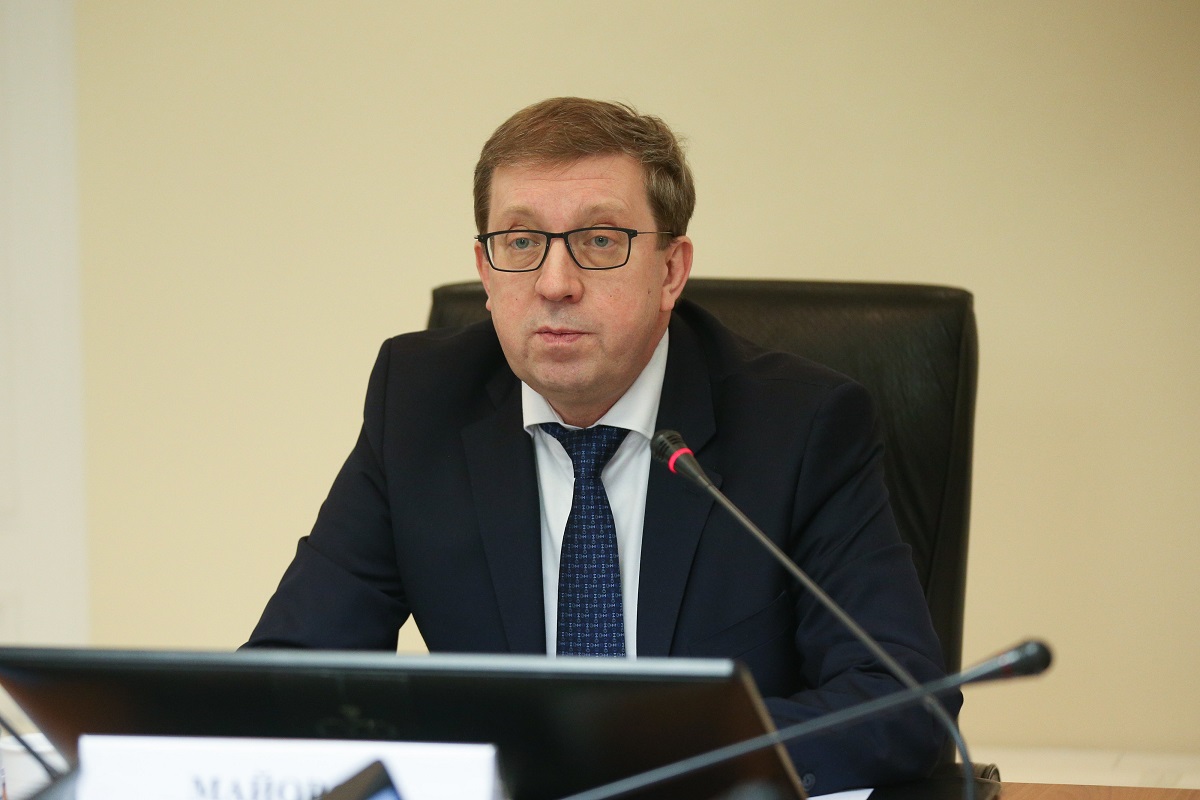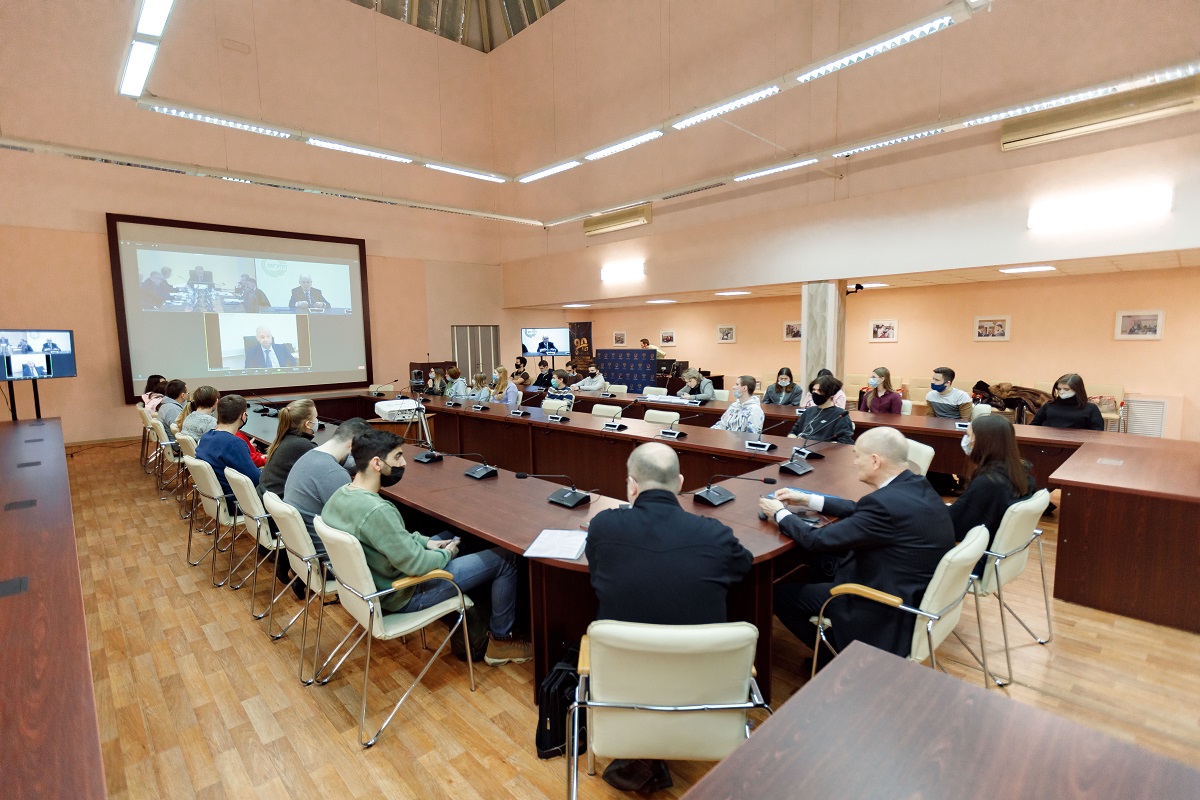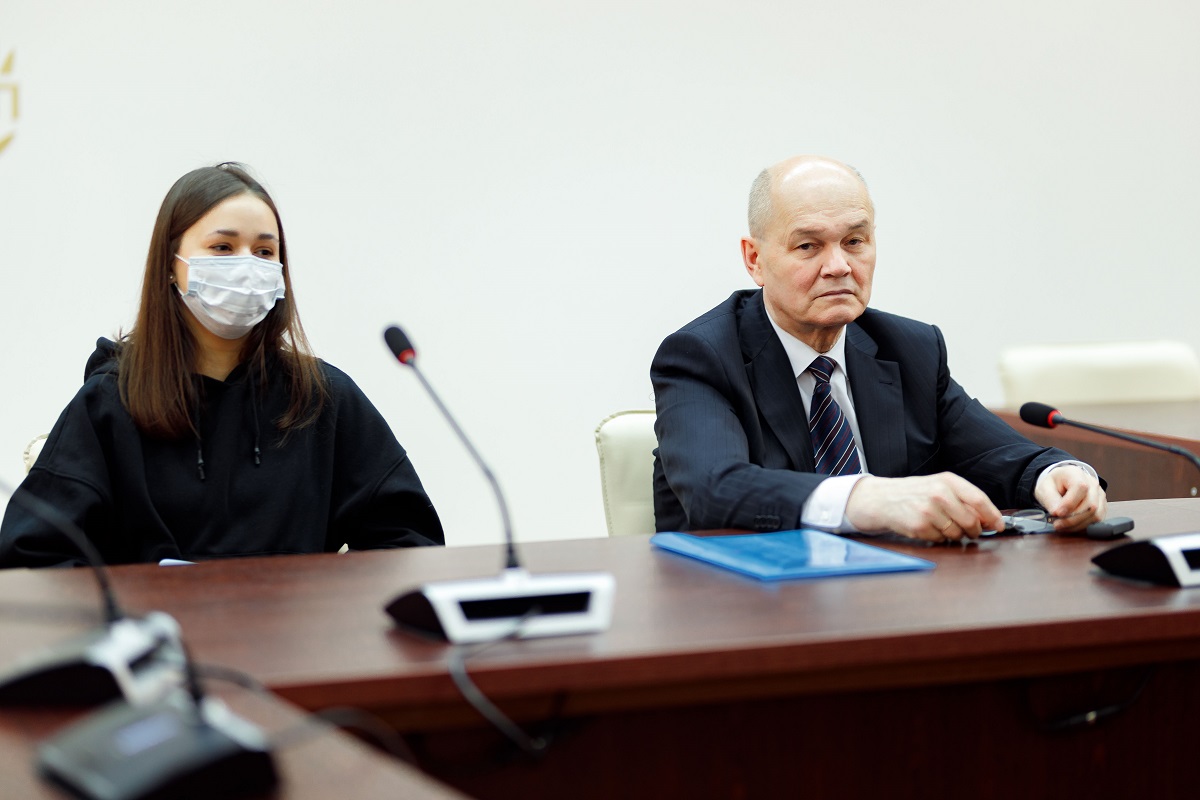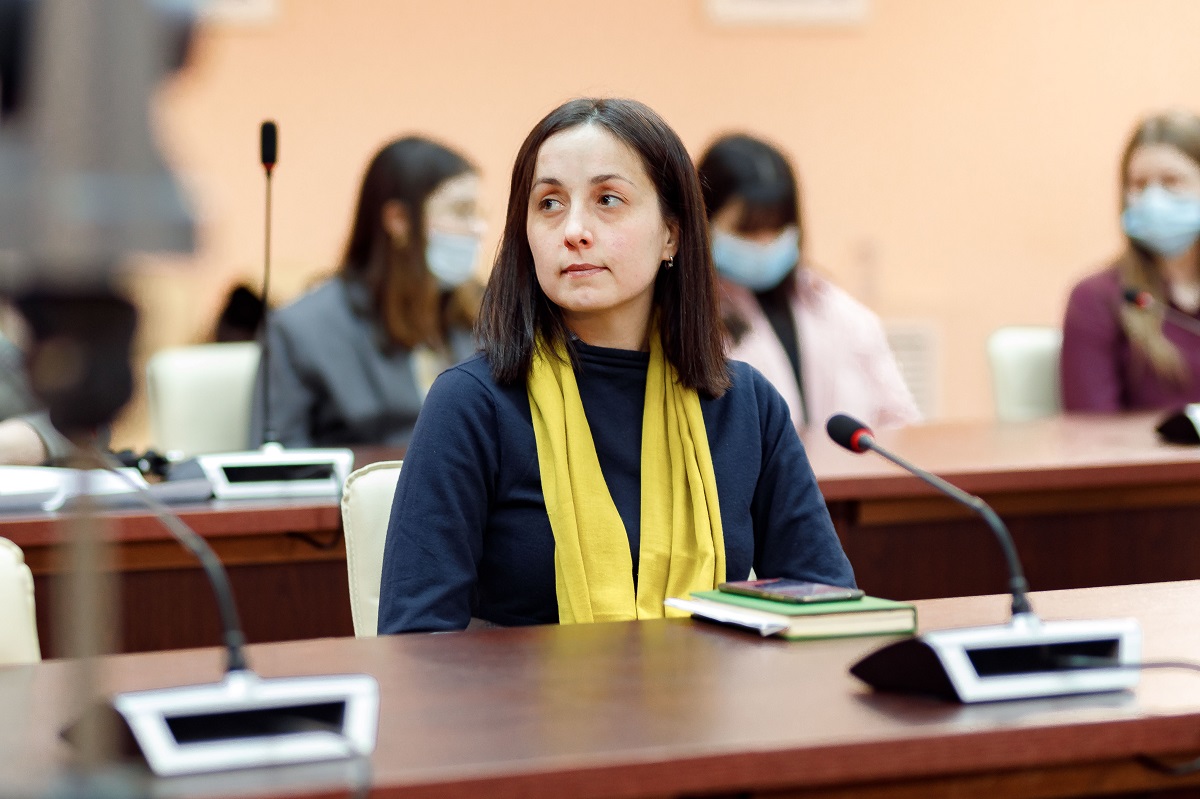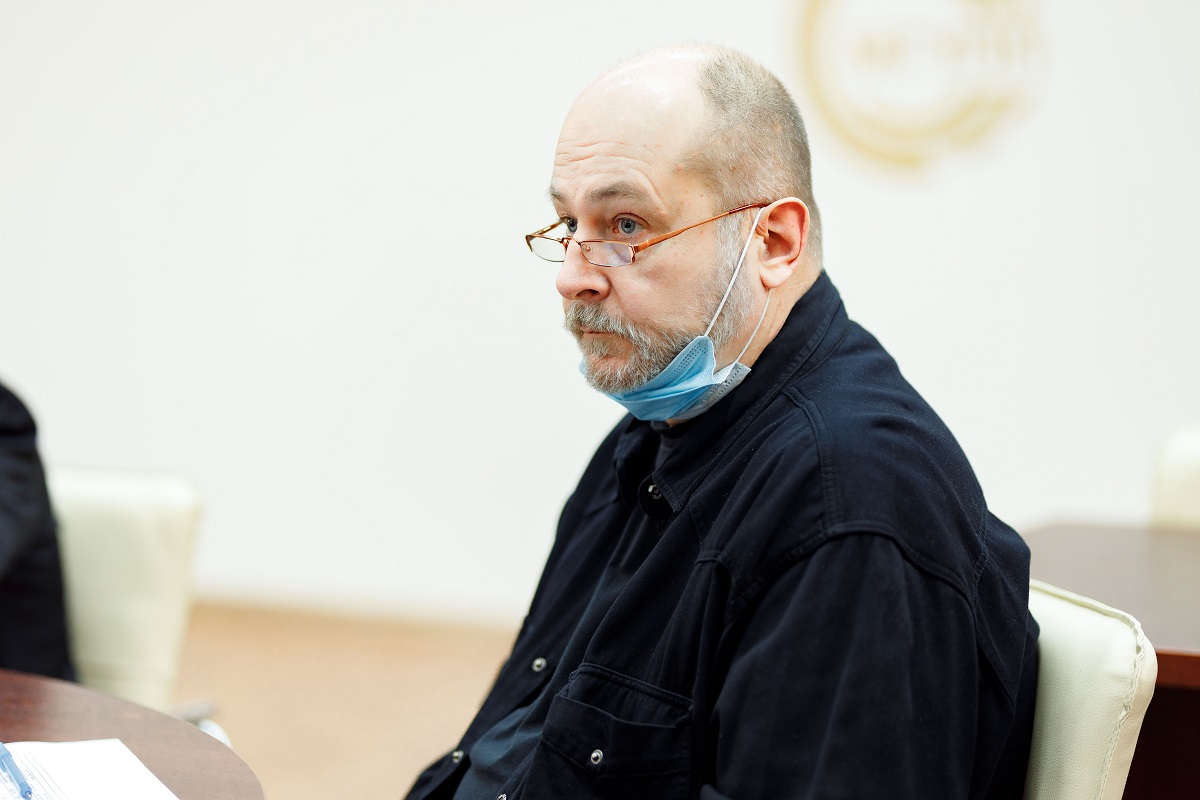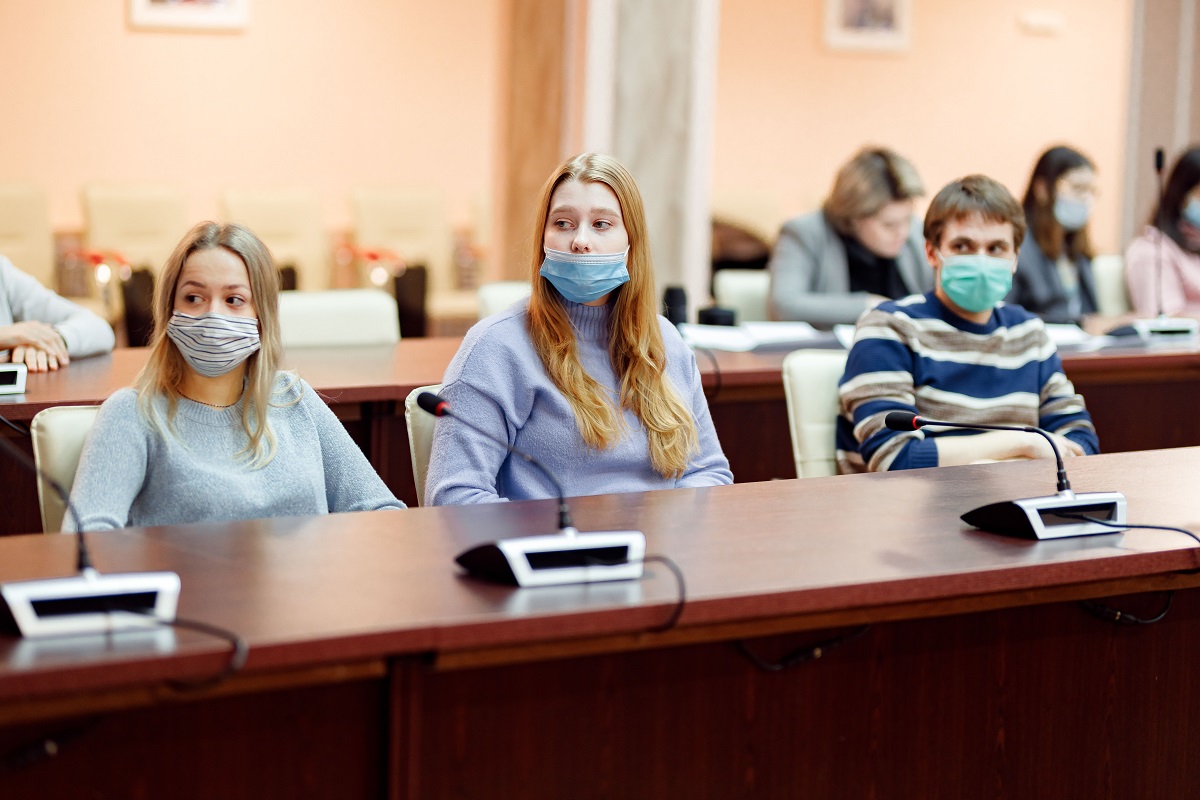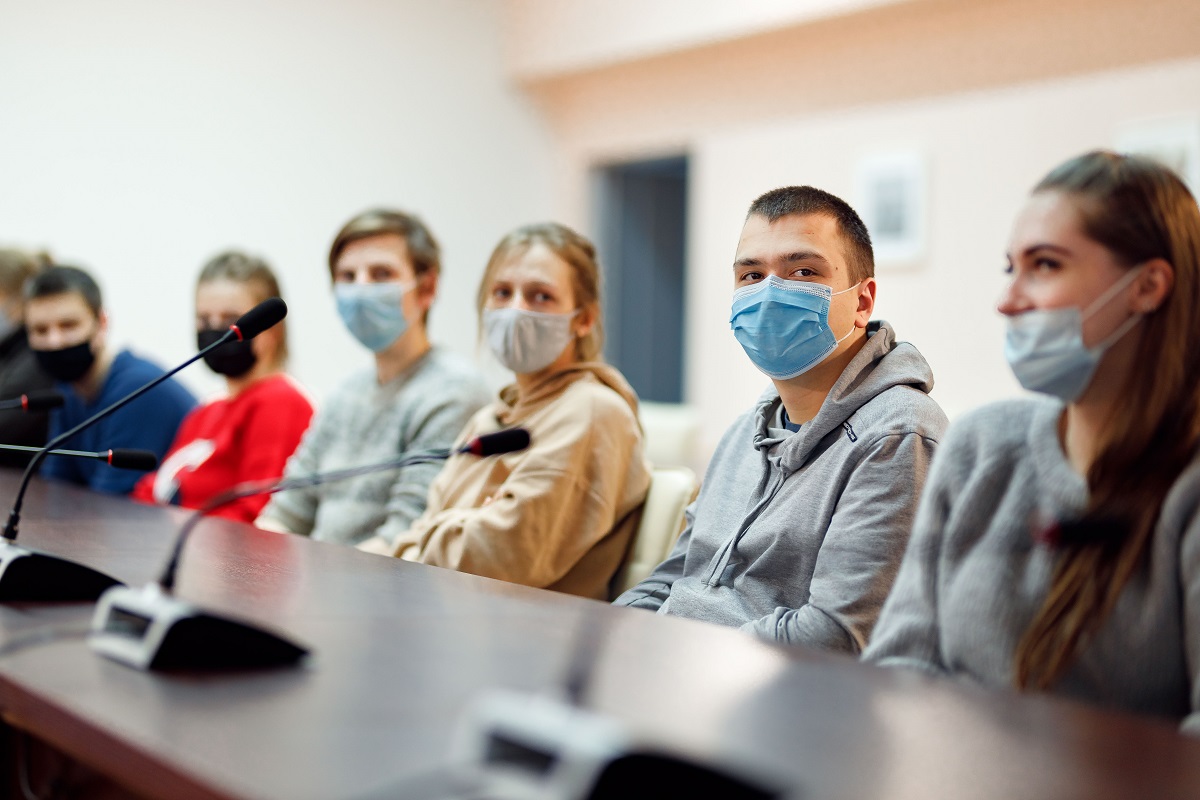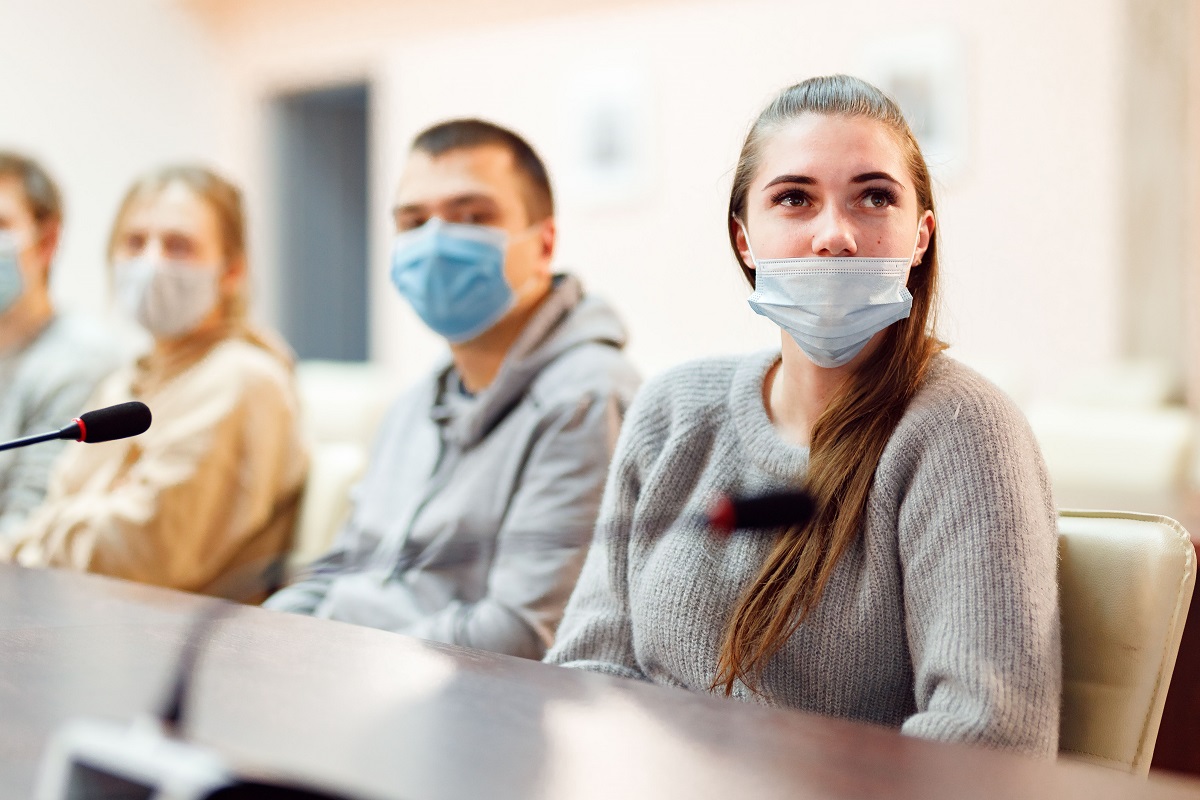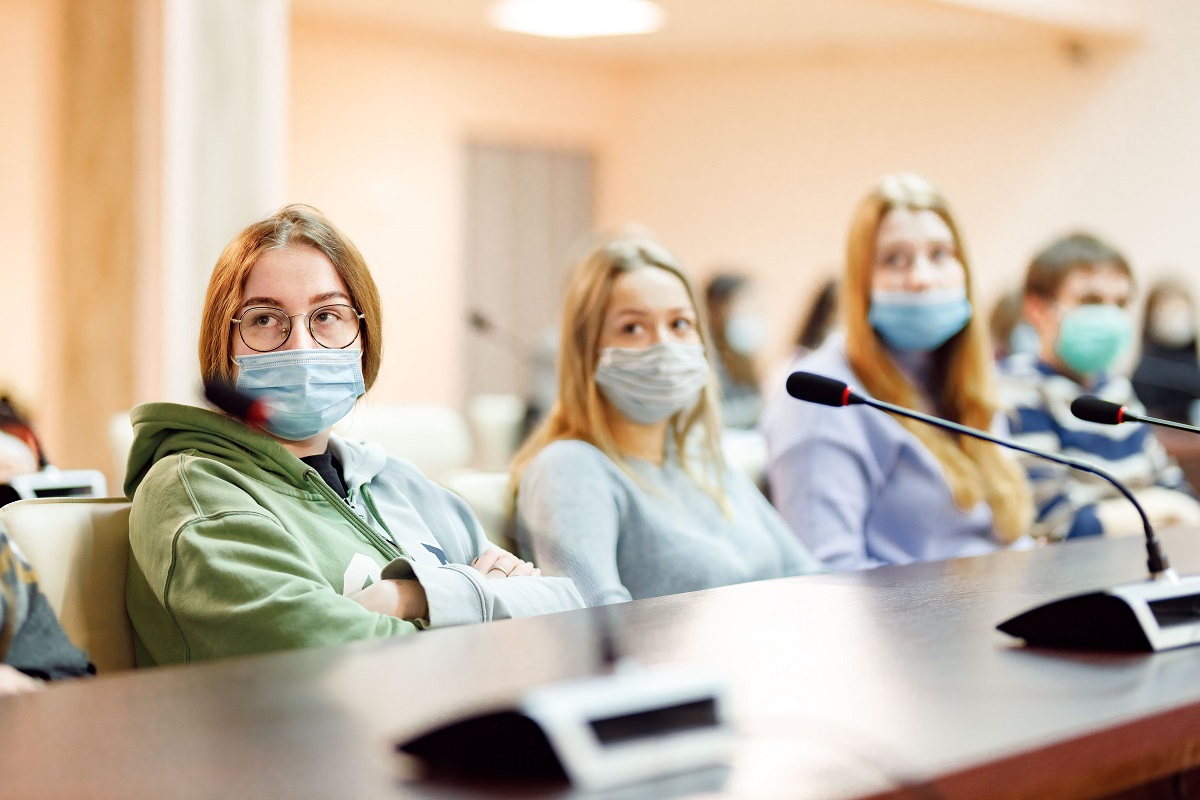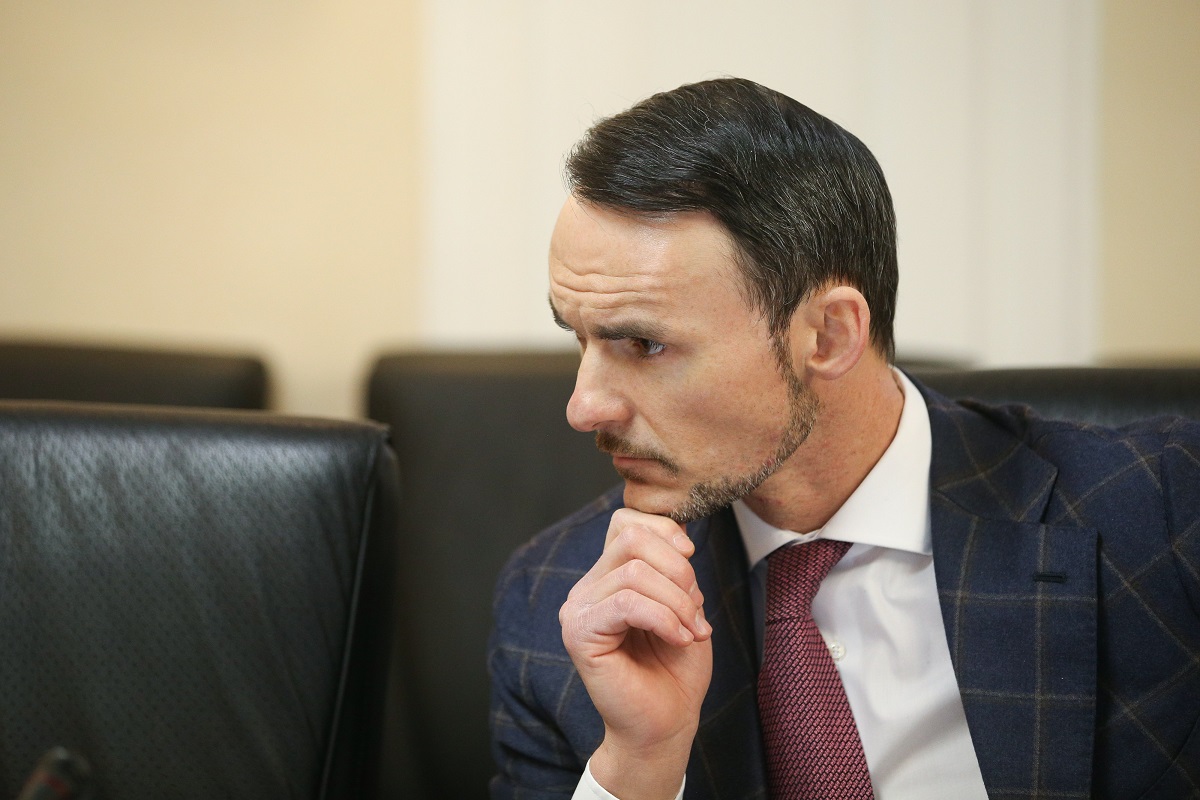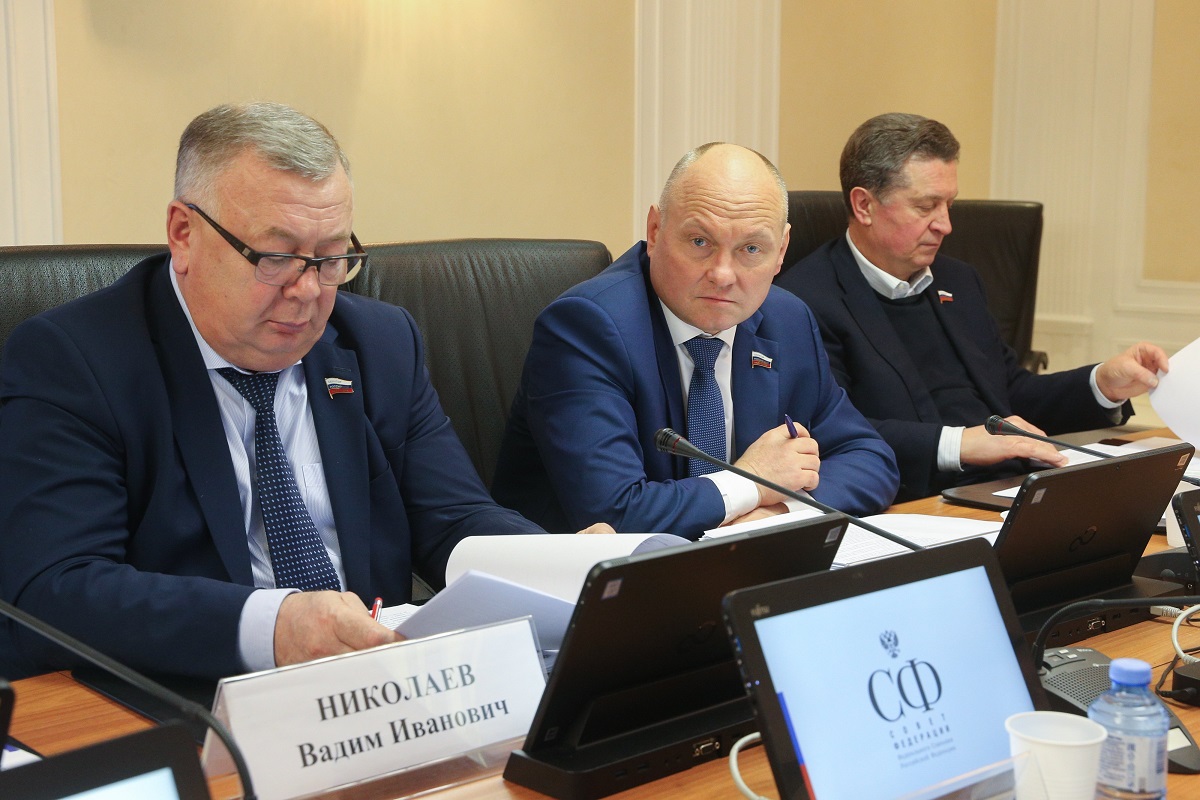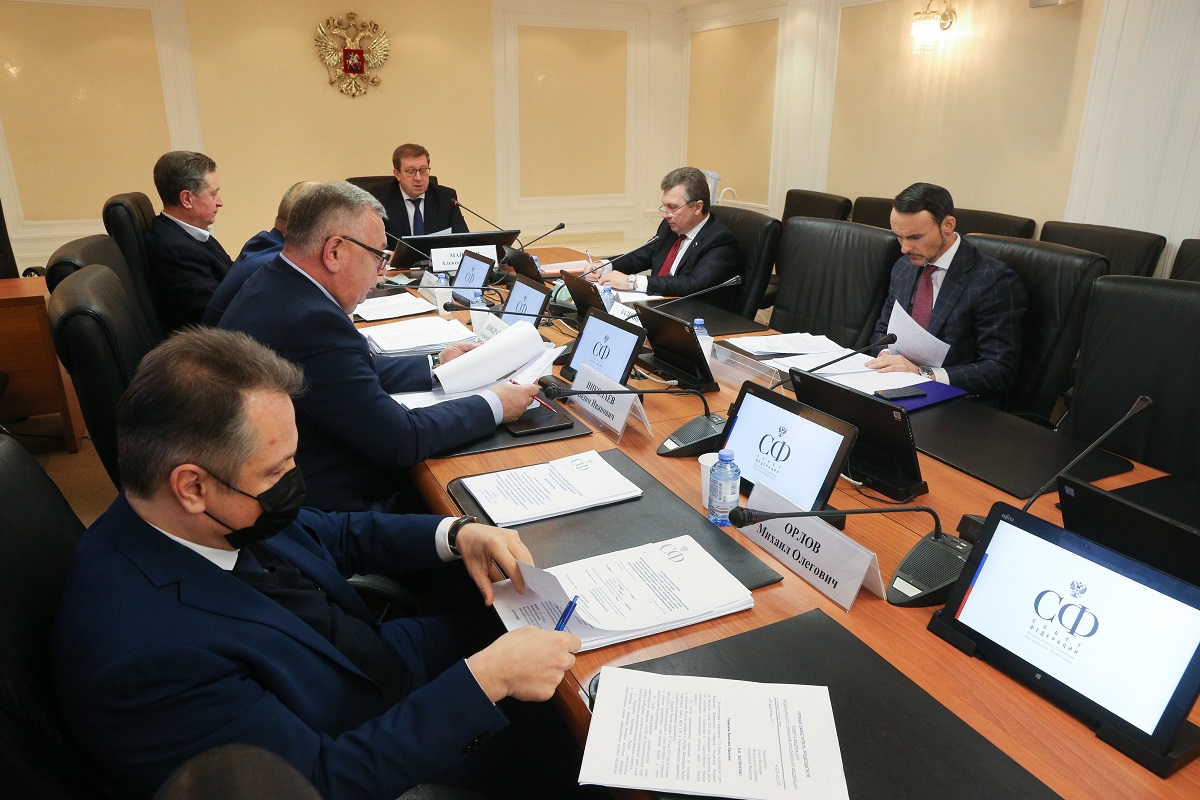В Совете Федерации обсудили вопросы развития винодельческой отрасли и виноградарства // The Federation Council discussed the development of the wine industry and viticulture
11 февраля 202111 февраля 2021 г. в Совете Федерации обсудили вопросы развития винодельческой отрасли и виноградарства. Заседание провел председатель Комитета СФ по аграрно-продовольственной политике и природопользованию А. Майоров.
Председатель Комитета СФ по аграрно-продовольственной политике и природопользованию Алексей Майоров провел совместное заседание рабочей группы по законодательному и кадровому обеспечению развития виноградарства и виноделия в РФ и секции Экспертного совета при Комитете СФ по аграрно-продовольственной политике и природопользованию. Обсуждались вопросы развития виноградарства и виноделия, пивобезалкогольной промышленности.
В мероприятии приняли участие заместитель председателя Комитета СФ по экономической политике Валерий Васильев, член Комитета СФ по аграрно-продовольственной политике и природопользованию (заместитель руководителя рабочей группы) Валерий Гаевский, член Комитета СФ по аграрно-продовольственной политике и природопользованию Алексей Кондратенко, член Комитета СФ по аграрно-продовольственной политике и природопользованию Вадим Николаев, ректор Московского государственного университета пищевых производств Михаил Балыхин, а также в онлайн формате — заместитель председателя Комитета ГД по финансовому рынку Константин Бахарев, представители профильных министерств и ведомств, научных учреждений, общественных организаций, экспертного сообщества.
Как отметил Алексей Майоров, цель совместного заседания — выработать подходы по безусловной реализации решения, выработанного на заседании Совета по вопросам агропромышленного комплекса и природопользования при Совете Федерации на тему «О совершенствовании законодательного регулирования развития виноградарства и виноделия в Российской Федерации» от 15 декабря 2020 года. Это заседание состоялось под председательством первого заместителя Председателя СФ Андрея Яцкина.
В ходе работы участники заседания обсудили сроки рассмотрения во втором чтении проекта ФЗ «О внесении изменений в Федеральный закон «О виноградарстве и виноделии в Российской Федерации», перспективы принятия подзаконных актов к этому Федеральному закону, перспективы внесения изменений в законодательство, направленных на расширение полномочий органов государственной власти субъектов РФ в области виноградарства и виноделия.
По словам Алексея Майорова, актуальным остается вопрос унификации терминологии Федеральных законов «О государственном регулировании производства и оборота этилового спирта, алкогольной и спиртосодержащей продукции и об ограничении потребления (распития) алкогольной продукции» и закон «О виноградарстве и виноделии в Российской Федерации».
Также, считает сенатор, необходимо ускорить процедуры межгосударственного согласования изменений в Технический регламент ЕАЭС «О безопасности алкогольной продукции», временно снять ограничения на предоставление государственных субсидий на приобретение посадочного материала виноградных растений иностранного производства. В то же время целесообразно рассмотреть возможность разработки дополнительных мер государственной поддержки субъектов малого и среднего предпринимательства в сфере виноградарства и виноделия.
Отдельным предметом обсуждения стало создание НОЦ мирового уровня по виноградарству и виноделию. Этому вопросу было посвящено выступление ректора МГУПП М. Балыхина. Не смотря на важность проведения исследований и разработок он отметил и большой блок задач связанный с подготовкой специалистов. «Необходимо создание НОЦ мирового уровня, так как это не только исследования и разработки, а большой блок задач связанный с подготовкой специалистов. И здесь самый главный принцип - наличие единой системы контроля качества подготовки в целом по стране, а не в отдельно взятом регионе», - отметил в своем выступлении ректор МГУПП - “Мы проводили исследования, общались с предприятиями и можем сказать, что идет запрос не только на специалистов технологов, но и на рабочие профессии, а это прежде всего СПО. В этой связи мы предлагаем привлечь к работе еще и колледжи, в том числе и региональные, и фактически сформировать задел для формирования технолога-инженера с компетенцией рабочей профессии и с управленческой компетенцией. В наш консорциум мы пригласили ведущие вузы страны, прежде всего Кубанский государственный технологический университет, Воронежский государственный университет, планируем пригласить Крымский федеральный университет, и я считаю, что это должна быть основа НОЦа. Вторая составляющая - это переподготовка уже действующих сотрудников на предприятиях. Здесь тоже есть запрос на компетенции, причем речь идет не о сутевых технологических компетенциях а о сопутствующих, таких как ветсанэкспертиза, пищевая безопасность, маркетинг и управление, ресурсосбережение, зеленые технологии - это то, что сейчас тоже в рамках НОЦа необходимо организовать и реализовать».
Он также отметил важность и необходимость сотрудничества с НИИ и не только региональными, но и с федеральными, такими как НИИ напитков. Такое сотрудничество позволит не только скоординировать научные исследования, но и провести работы по созданию единой базы эталонов сырья, единой базы эталонов напитков - той работы, которая уже ведется в МГУПП совместно с НИИ напитков.
Сотрудничество в этом направлении как раз и может стать основной составляющей для задела мирового уровня для отрасли. “Мы выступили с предложением создать НОЦ мирового уровня и это решение было поддержано в Совете Федерации, к нам поступил запрос от Департамента координации деятельности высшего образования и мы взяли проект в работу. У нас есть предложение создать Агентство по виноградарству и виноделию в рамках НОЦа - некоммерческую организацию, в которую можно привлечь не только бизнес, науку и образование, ассоциации и союзы, но и органы исполнительной и законодательной власти на местах с тем, чтобы можно было координировать работу предприятий, сопровождать и помогать бизнесу на всех этапах производства. А цель одна - это качественный продукт , удовлетворение потребностей потребителя и то, о чем говорит наш закон - наше сырье и наше производство”, - сказал в завершении своего выступления Михаил Григорьевич. Также он заверил участников совещания, что на следующей встрече уже будет представлена предметная модель НОЦа в с выходом на заявленный мировой уровень.
А. Майоров оценил большую роль МГУПП в работе Комитета и важность представленных инициатив. Он также отметил большую важность практической составляющей проекта. «Чтобы научные знания трансформировались в практическую плоскость - они должны быть на рынке востребованы», - резюмировал председатель Комитета СФ по аграрно-продовольственной политике и природопользованию А. Майоров.
Кроме этого участники заседания обменялись мнениями о совершенствовании и ускорении порядка введения сортов винограда в государственный реестр селекционных достижений Российской Федерации, ввезенных и произрастающих на территории нашей страны, о возможности строительства зданий и сооружений для производства вина России на землях сельскохозяйственного назначения.
Высказанные в ходе заседания предложения будут обобщены и учтены в дальнейшей работе группы по законодательному и кадровому обеспечению развития виноградарства и виноделия в РФ и секции Экспертного совета при Комитете СФ по аграрно-продовольственной политике и природопользованию.
February 11, 2021 in the Federation Council discussed the development of the wine industry and viticulture. The meeting was held by the Chairman of the Federation Council Committee on Agrarian and Food Policy and Environmental Management A. Mayorov.
Chairman of the Federation Council Committee on Agrarian and Food Policy and Environmental Management Aleksei Mayorov held a joint meeting of the working group on legislative and personnel provision for development of viticulture and winemaking in Russia and the section of the Expert Council under the Federation Council Committee on Agrarian and Food Policy and Environmental Management. They discussed issues of development of viticulture and winemaking and beer and alcoholic beverages industry.
The event was attended by Valery Vasiliev, Deputy Chairman of the Federation Council Committee on Economic Policy, Valery Gaevsky, member of the Federation Council Committee on Agrarian and Food Policy and Environmental Management (Deputy Head of the Working Group), Alexey Kondratenko, member of the Federation Council Committee on Agrarian and Food Policy and Environmental Management, Vadim Nikolaev, a member of the Federation Council Committee on Agrarian and Food Policy and Environmental Management, Mikhail Balykhin, Rector of Moscow State University of Food Production, as well as Konstantin Bakharev, Deputy Chairman of the State Duma Committee on Financial Market, representatives of relevant ministries and agencies, scientific institutions, public organizations and the expert community.
As Aleksey Mayorov noted, the purpose of the joint meeting - to develop approaches for the unconditional implementation of the decision, worked out at a meeting of the Council of the Federation Council on Agro-industrial Complex and Environmental Management "On improvement of legislative regulation of viticulture and winemaking in the Russian Federation" of December 15, 2020. This meeting was held under the chairmanship of the First Deputy Chairman of the Federation Council Andrey Yatskin.
During the meeting, participants discussed the timing of the second reading of the draft Federal Law "On Amendments to the Federal Law" On Viticulture and Winemaking in the Russian Federation ", the prospects for by-laws to this Federal Law, the prospects for changes in legislation aimed at expanding the powers of public authorities of the Russian Federation in the field of viticulture and winemaking.
According to Aleksey Mayorov, the question of unification of terminology of the Federal Law "On state regulation of production and turnover of ethyl alcohol, alcoholic and spirit-based products and limiting the consumption (drinking) of alcoholic beverages" and the law "On Viticulture and Wine-making in the Russian Federation" remains relevant.
Also, according to the senator, it is necessary to accelerate the procedures for interstate approval of amendments to the Technical Regulations of the Eurasian Economic Union "On the safety of alcoholic products," to temporarily lift restrictions on the provision of state subsidies for the purchase of planting material of grape plants of foreign production. At the same time, it is advisable to consider the possibility of developing additional measures of state support for small and medium-sized businesses in the field of viticulture and winemaking.
A particular subject for discussion was the creation of a world-class center for viticulture and winemaking. Rector of Moscow State University of Food Production M. Balykhin devoted his speech to this issue. Despite the importance of research and development, he noted a large block of problems associated with the training of specialists. "It is necessary to create Scientific and Educational Center of the world level, as it is not only research and development, but a large block of problems associated with the training of specialists. And here the most important principle is the presence of a unified system of quality control of training in the whole country, not in a single region", - noted in his speech the rector of the MSUFP - "We conducted research, communicated with the enterprises and we can say that there is a demand not only for technologists, but also for working professions, and this is primarily secondary vocational education. In this connection we offer to involve also colleges, including regional ones, and actually to form a reserve for formation of technologist-engineer with competence of working profession and with managerial competence. We have invited the leading universities of the country to our consortium, first of all Kuban State Technological University, Voronezh State University, we plan to invite Crimean Federal University, and I believe that this should be the basis of the Scientific and Educational Center. The second component is the retraining of the existing employees at the enterprises. Here there is also a demand for competences, and we are not talking about basic technological competences, but about related competences, such as veterinary expertise, food safety, marketing and management, resource saving, green technologies, which is something that should also be organized and implemented within the Scientific and Educational Center".
He also noted the importance and necessity of cooperation with research institutes and not only regional, but also with federal, such as the Beverage Research Institute. This cooperation will allow not only to coordinate scientific research, but also to work on the creation of a single database of raw material standards, a single database of beverage standards - the work that is already being done in the MSUFP together with the Beverage Research Institutes.
The cooperation in this direction can become the main component of the world-class reserve for the industry. "We made a proposal to create a world-class scientific and educational center and this decision was supported in the Federation Council, we received a request from the Department of Coordination of Higher Education and we took the project to work. We have a proposal to create an Agency for winegrowing and winemaking in the framework of the Scientific and Educational Center - a noncommercial organization, which can involve not only business, science and education, associations and unions, but also the executive and legislative authorities in the field, so that we could coordinate the work of enterprises, accompany and help businesses at all stages of production. And there is only one goal - it is a quality product, satisfaction of consumer needs and what our law says - our raw materials and our production, "- said Mikhail Balykhin at the end of his speech. He also assured the participants of the meeting that at the next meeting the subject model of the Scientific and Educational Center with the access to the declared world level will already be presented. And the goal is the same - this is a quality product, satisfaction of consumer needs and what our law says - our raw materials and our production", - Mikhail Balykhin said at the end of his speech. He also assured the participants of the meeting that at the next meeting the subject model of scientific and educational center with the access to the declared world level will already be presented.
А. Mayorov appreciated the great role of MSUFP in the Committee's work and the importance of the initiatives presented. He also noted the great importance of the practical component of the project. "In order to transform scientific knowledge into practice, it must be in demand in the market", - summarized the Chairman of the Federation Council Committee on Agrarian and Food Policy and Environmental Management A. Mayorov.
In addition, the participants exchanged views on improving and accelerating the introduction of grape varieties to the State Register of Breeding Achievements of the Russian Federation, imported and growing in our country, on the possibility of construction of buildings and structures for wine production in Russia on agricultural land.
Proposals expressed during the meeting will be summarized and taken into account in the future work of the group on legislative and personnel support of viticulture and winemaking in Russia and the section of the Expert Council of the Federation Council Committee on Agrarian and Food Policy and Environmental Management.
